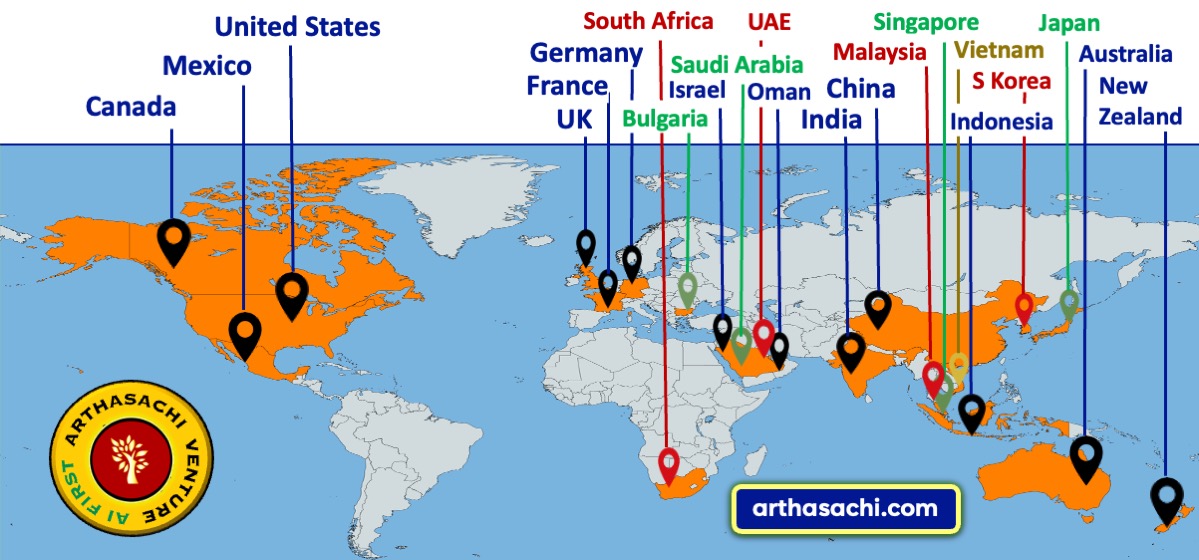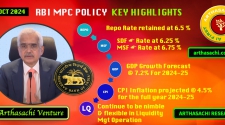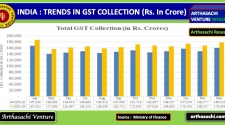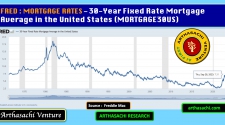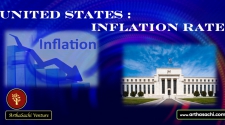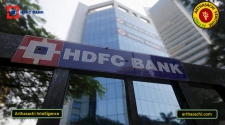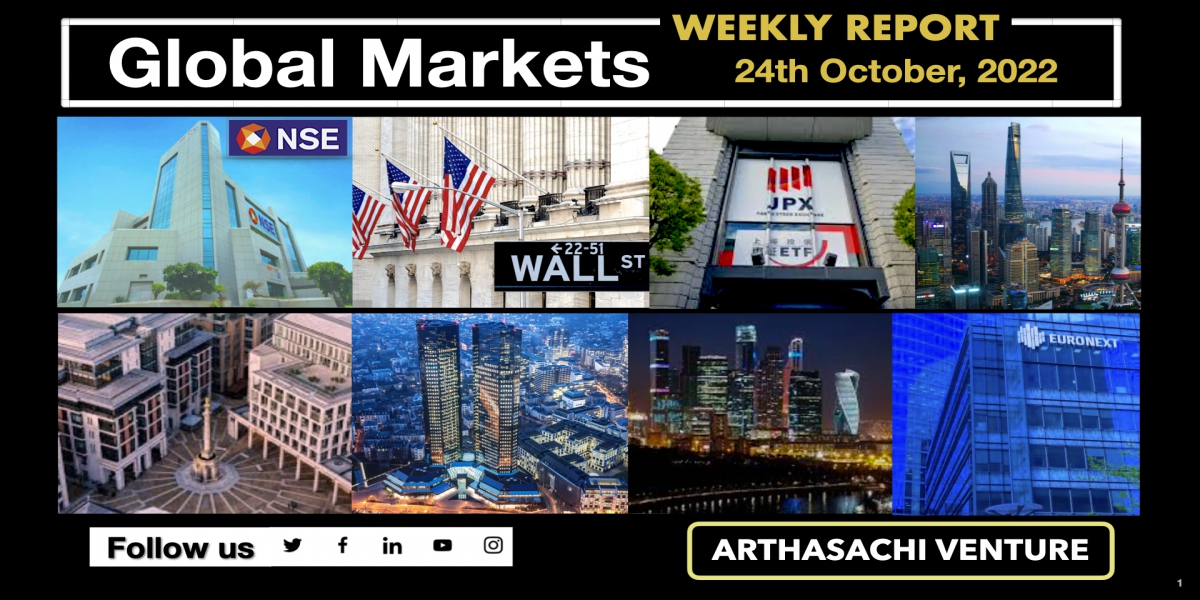
Global Markets Weekly Reports || 24th October 2022
Wall Street ended higher; Inflation fear clipped the overall sentiment in the Stock Markets. Fed Monetary Policy meetings planned November 1-2 would be closely watched, as US Economy entered Recession and Europe is heading towards it as perceived by the Analysts.
Asian Markets
![]()
Asian Markets remains as the bright spot across the Region. A clear trend emerged in the recent months; Asian Markets dissociated themselves from US & European Markets’ deeper correction and US recession which is impacting the European countries. Few Asian Markets have shown a big positive gain in the recent months: India’s NIFTY50 & Indonesia JCI Index even though correction is getting deeper in European Region & US Markets and longer recession fear is mounting.
The Indonesia JCI Index, the India NIFTY50 Index and the Singapore STI Index stood out as the best performing Markets outperforming its Asian counterparts. On YTD basis JCI, NIFTY50 and STI Index closed the week with around 7%, 1% gain and 5% loss respectively.
We closed this week with a deeper correction in two markets: Hong Kong, and Singapore. The Hong Kong HIS and the Singapore STI Index lost 2.27% and 2.29% this week and closed at 16,211 and 2,970 respectively. The India NIFTY50 Index closed the week with a gain of 2.27% at 17,576. As indicated in our earlier report we have seen that the INDIAN Market outperformed other Markets in the region and retained itself as the fastest growing economy globally. It is heading towards hitting LIFE TIME HIGH which is just 4% away. The Australian ASX30, the China CSI and the Japan NIKKEI Index closed with losses of 1.21%, 1.08% and 0.74% at 6,676; 3,039 and 26,891 respectively. The Indonesia JCI Index closed with a gain of 2.98% at 7,018.
On YTD basis two worst performing markets in this region are the HIS and CSI Index down -31% and 17% respectively.
US & Canada Markets
![]()
Blood bath continued in US Stock market for many weeks, now a reversal seen this week. JP Morgan CEO, Jamie Dimon said, “Soft landing in unlikely for the US Economy” become relevant and question being raised is it a relief rally. Especially since the last FOMC meeting, volatility in the US Markets have aggravated. After the Nasdaq, the Dow Jones, then the S&P 500 entered the bear-market territory. A prolong recession is on the horizon, economic indicators pointing towards this. Financial Markets price in the economic downside a head. Weak US Economic indicator include higher Consumer Price Index at 8.2% in September, have soared close to 40-year high and well above Fed expected rate 2%. An extremely tight labor market, unemployment is at 50 years low. Consistent two quarter negative GDP growth rates in 2022 pushed the US into recession.
The Fed has hiked 75 basis points interest rates on 21st Sep meeting, the third biggest successive increase since 1994. Fed also raised the Official projected interest rate figure to 3.25% by year end which means another 125 Basis points of tightening by year end. In the meeting Fed indicated that it would continue to raise rates until it sees clear and consistent evidence that inflation is abating. A serious debate over soft vs hard landing of US Economy is set to rest by Fed Chair Jerome Powell in his last press conference, “The chances of a soft landing are likely to diminish to the extent that policy needs to be more restrictive.” He also added, “But the alternative is worse; a failure to restore price stability would lead to greater pain later on” The focus now shifted to how long the recession will extend and its potential deep impact on overall US Economy. All the parameters suggest that risk is emerging both in US and Europe. World Bank also signals, risk of Global Recession in 2023 in its latest report.
The Dow Jones Index, the S&P 500 Index, and the NASDAQ composite Index gained 4.85%, 4.74% and 5.22% respectively and closed at 31,083; 3,753 and 10,860.
US entered prolonged recession; the big question remains how long the recession period will last. On YTD basis the performance of the three Indexes, DOWJONES Index dove -14%, S&P 500 Index dropped -21% and NASDAQ Index lost -31%.
European Markets
![]()
European Stock Markets are the most impacted one due to its proximity to the geopolitical escalation in the region and mounting Energy crisis. Russia’s supplies through Nord Stream pipelines which carried huge volumes under the Baltic Sea to Europe were damaged last week. All this has throttled gas supplies to Germany which hit severely due to Energy crisis. Bank of England hikes another 50 Basis points base rate to 2.25% on its last Monetary policy meeting and Government’s biggest tax cuts since 1972 triggered financial chaos. Britain’s central bank this week again had to step in to try and quell a fire-storm in the bond markets which marked a plummet in sterling. UK Central Bank in its last Monetary Policy mentioned, “Britain would enter a recession at the end of 2022 and not emerge until early 2023 dampen the overall sentiment in the Markets.” German inflation (HICP) last month rose close to a 40-year high of 10.9 percent in September month and the IMF slashed the German forecast for growth next year by 1.9% points to 0.8% the biggest downgrade of any country. ECB goes big with jumbo rate hike of 75 Basis Points to 0.75% from zero percentage on 8th Sep meetings with a clear message of more hikes to come in the coming meetings. In the midst of all this, UK Prime Minister Liz Truss stepped down after just six weeks in office putting Britain under economic fallout. Moody’s downgraded UK, cut the outlook from “Stable” to “Negative”.
The UK FTSE 100 gained 1.62% this week closed at 6,970. It remains the best performing market in Europe even after UK Prime Minister Liz Truss stepping down and Bank of England’s recession signal. The Italy FTSE MIB Index closed the week at 21,568 with a gain of 3.04% it hasseen one of the deepest corrections in the past few months. The Germany DAX & the France CAC40 gained 2.36% & 1.74% respectively this week. The Switzerland SMI gained 0.86% this week closed at 10,418. The Russia MOEX Index jumped 4.75% this week & closed at 2,044.
On YTD basis the worst performing markets in the region are the Russia MOEX Index which lost -46%, the Germany DAX dove -20%, the Italy FTSE MIB dropped -21%, and the Switzerland -19% respectively. Over the years Switzerland is losing its status as a safe haven for the wealthiest.
Top News
Other News
MARKETS
WEALTH
ECONOMICS
START UP
TECHNOLOGY
BUSINESS
Alliances and Partners

Arthasachi Venture Footprints
